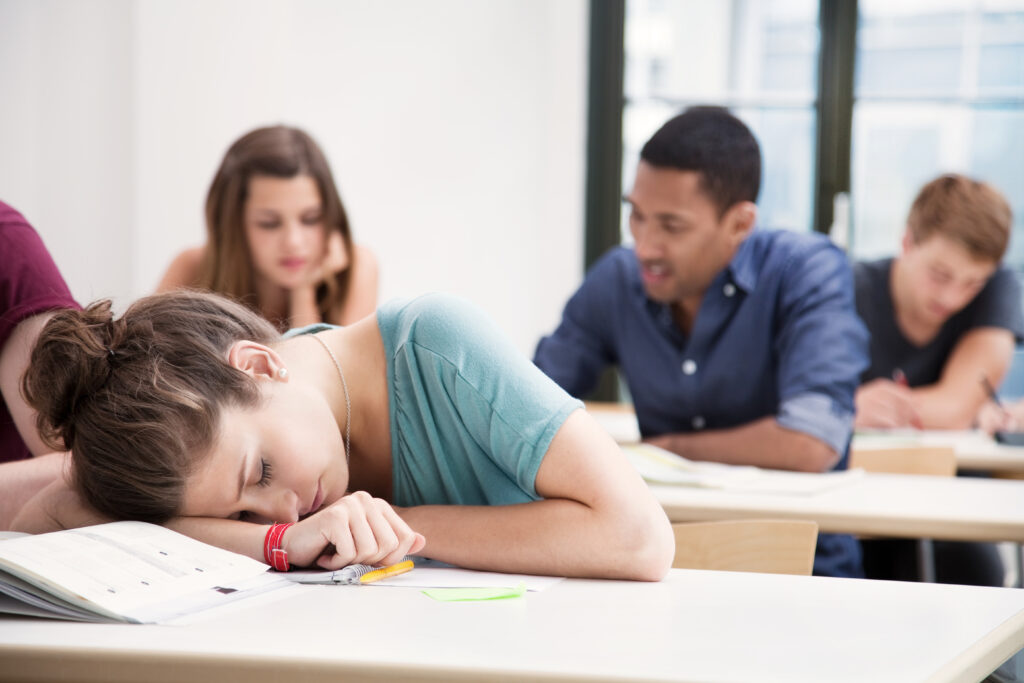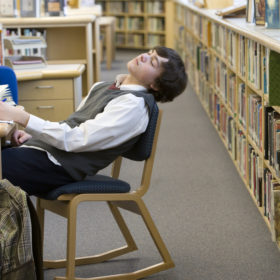Does Your Student Sleep in Class?

Many teachers face a common challenge—students sleeping in class.
A lack of sleep is all too common among students, which can lead to falling asleep in school. What if instead of waking students up, teachers took a different approach and allowed students to sleep in class?
It may sound counterintuitive, but research shows that allowing students to nap in class can positively impact their academic performance and overall health.
The Benefits of Sleep for Students

Sleep is essential for students’ physical and mental health. During sleep, the brain processes new information and consolidates memories, making it crucial for learning and academic success.
Lack of sleep can have negative effects on students’ academic performance, as well as their mood, behaviour, and physical health.
Research has shown that sleep deprivation can lead to a host of negative outcomes, including:
- Impaired cognitive function and memory
- Decreased attention and focus
- Increased irritability and mood swings
- Higher risk of obesity, diabetes, and other chronic diseases
Given the importance of sleep for students’ well-being, it’s not surprising that some educators are exploring ways to incorporate sleep into the school day.
The Science Behind Sleeping in Class: It’s Sometimes OK
One way that teachers can help their students get more sleep is by allowing naps in class. While sleeping in class may seem like a radical idea, some teachers are finding that dozing off during class might occasionally be in a student’s best interest, even if it means missing that day’s lesson. As some teachers have shown, empathy and leniency can be what students need more than a reminder about the in-class rules.
Sleep studies tell us that napping—even in class—can actually enhance academic performance and cognitive function.
Research shows that even short naps of 20-30 minutes can improve cognitive performance, attention, and memory retention. This is because sleep helps to reset the brain’s processing and consolidates new information, making it easier to remember and retain.
Napping can also have benefits for students’ physical health by lowering blood pressure, reducing stress, and boosting the immune system. All of these benefits can contribute to overall well-being and academic success.
It’s also important to remember that teens especially need more sleep. Research from Johns Hopkins shows that most teens need 9 to 9½ hours of sleep per night—that’s an hour or so more than they needed at age 10.
There are often many things going on in a student’s life at home that teachers might not be aware of. A student sleeping in class does not always mean apathy or lack of motivation. Sometimes, students need sleep more than they need anything else.
Need Help With Student Learning?
Getting a good night’s rest plays a very important role in learning. If your child is dozing off during the day, try speaking with them to see if there might be any underlying issues that might be preventing them from getting a good night’s rest.
If your child’s grades are slipping due to tiredness, we can help.
Contact a location near you to get started today!




